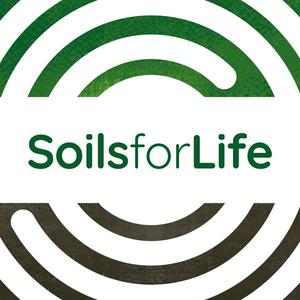This episode of the Soils for Life podcast is part of our series of mini-episodes with farmers profiled in our series of cropping practice guides.
In this short episode, Eli Court chats with Victorian farmer Grant Sims about how multispecies cover cropping has transformed his mixed farming system at Pine Grove near Lockington. After moving away from synthetic fertilisers, fungicides and insecticides, Grant began experimenting with diverse seed mixes to bring more life back into his soils.
He explains how integrating livestock with multispecies crops built soil structure, reduced weed pressure and improved resilience during tough seasons. Grant also shares what he’s learned about designing mixes for different paddocks, fixing nitrogen through cover crops, and cutting input costs without sacrificing productivity.
Along the way, he’s learnt through trial and error from experiences like underestimating the importance of weed control before sowing and trying to “add biology” to soils that weren’t yet ready for it. He talks openly about these lessons, as well as his current experiment sowing his whole farm with zero nitrogen for the first time.
Highlights
How Grant “stumbled into” multispecies crop mixes and scaled them over time
The role of livestock grazing in improving performance and reducing risk
How cover crops can build fertility, especially nitrogen fixation and phosphorus unlock
Lessons he’s learned, e.g. weed control, applying biology to soils not ready for it
Taking the leap: sowing with zero nitrogen and watching the system work
What he wishes he’d known earlier
Resources & links
Read the full Practice Guide on Multispecies Cover Cropping: https://soilsforlife.org.au/practice-guide-multispecies-cropping/
Down Under Covers: https://www.downundercovers.com/
If you enjoyed this episode, please rate & review it on your podcast app and share it with others. Email us with feedback or suggestions for future episodes at
[email protected] and subscribe to the Soils for Life newsletter to find out the latest.


